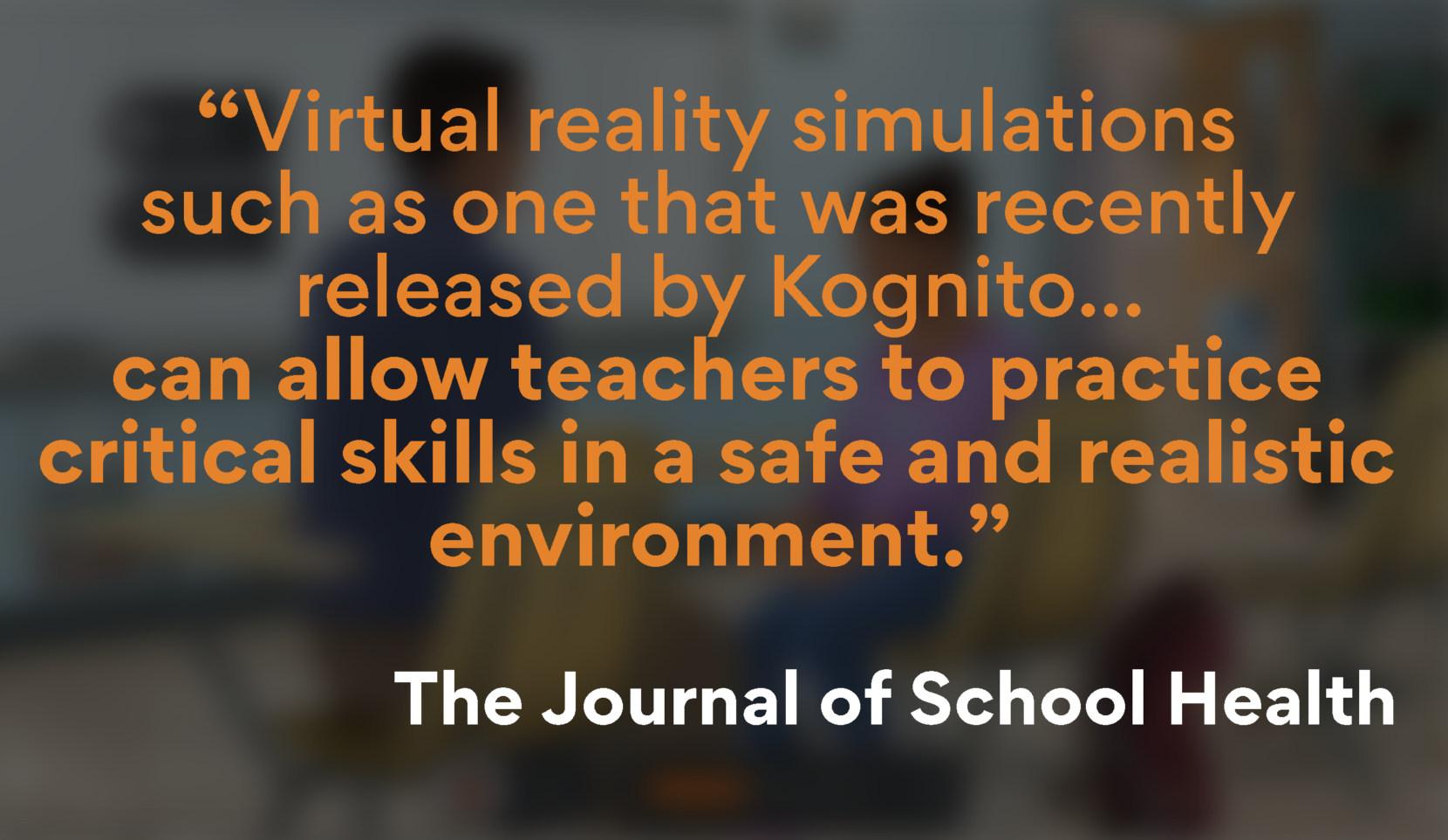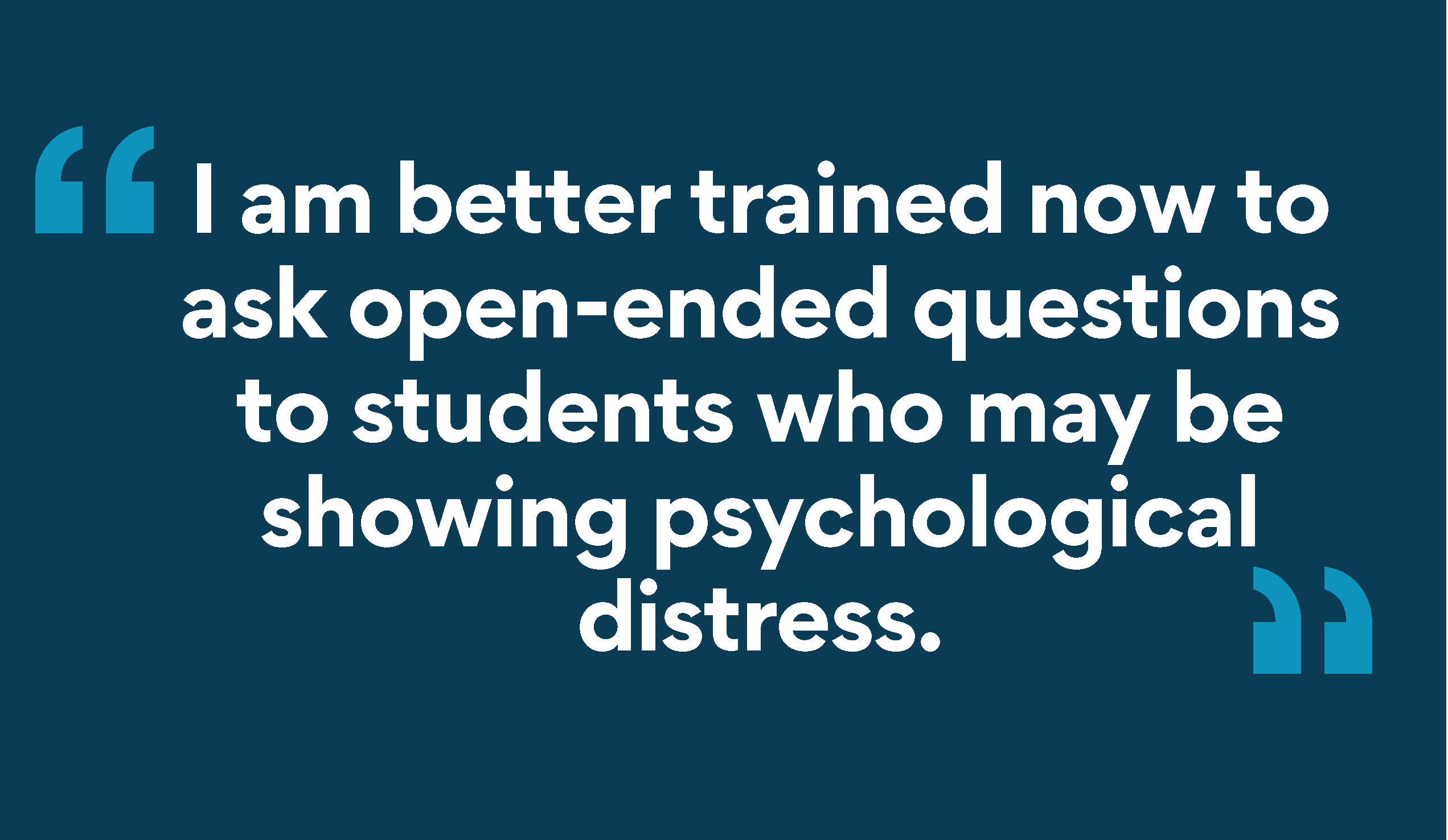Trauma-Informed Educators: Better Prepared to Recognize and Address Trauma In the Classroom
According to the National Survey of Children’s Health, nearly a third young people in the U.S. youth have undergone two or more adverse childhood experiences that will impact their physical and mental health in adulthood. What will the data look like with the mass anxiety and distress students are experiencing from COVID-19 disruptions, after spending months at home and facing uncertainty as school resumes in the fall?
Districts are seeing the benefits of introducing trauma-informed training to their educators and school staff. To receive flexible training that can be delivered remotely and quickly to address the urgent need for trauma-informed classrooms, districts will likely be looking for effective remote solutions.
Can remote training be effective?

Fortunately, virtual simulations have the potential to allow educators to gain skills needed to recognize trauma into practice in a safe and realistic environment that reflects the classroom. A review authored by Child Trends experts published in The Journal of School Health says:
“Virtual reality simulations such as one that was recently released by Kognito hold promise because they can allow teachers to practice critical skills in a safe and realistic environment.”
Kognito’s Trauma-Informed Practices for K12 Schools training is one of those simulations. It’s an interactive role-play training experience to help educators build skills, confidence, and empathy that better supports students whose behavior might be related to sources of trauma or distress.
Have educators seen results?

Districts who have implemented the Trauma-Informed Practices for K12 Schools remote training have started to see benefits for their educators and as a result, in their students. Below is just a small sample of feedback from users who have completed the simulation:
“I am a school psychologist. Part of my job is to talk to students and families regarding student mental health. I routinely use the skills from the simulation for students who are referred to me or referred themselves to me to discuss mental health concerns. The simulation was helpful in walking through some scenarios I have experienced in my work.” – K-12 educator
“I am better trained now to ask open-ended questions to students who may be showing psychological distress.” – K-12 educator
Award-winning trauma-informed training

Many educators say they appreciate the “reflection-in-action” approach that allows them to practice with real-life scenarios that translate to classroom practice.
“I am more aware of the questions I ask students – aiming to be open-ended/clarifying/supportive. I think it has led to better and more productive conversations.” – K-12 educator
“The simulation was a good reminder in how to respond when a student is in distress. I have used the skills learned to remain calm and supportive when a student was having a tantrum in my session.” – K-12 educator

Like these educators, the industry also agrees that Trauma-Informed Practices for K12 Schools helps build the knowledge and skills necessary to support students having issues related to trauma and distress. That’s why it received a Gold Medal citation for excellence in the Social Emotional Learning (SEL) category in the 2019 International Serious Play Awards program.
